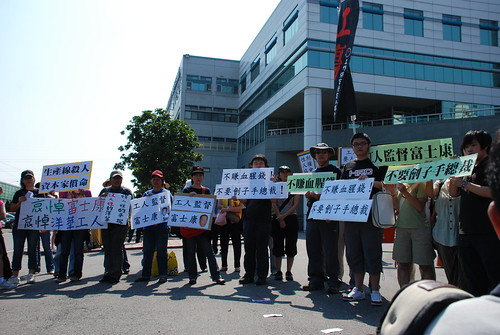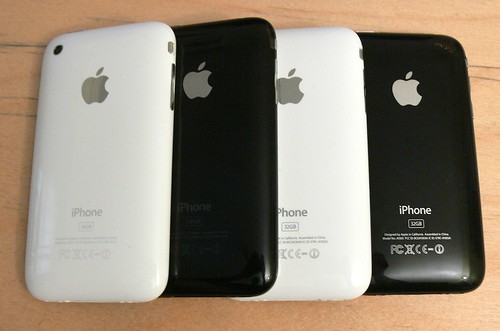No child is ever really perfect, of course. Every human being is born with physical imperfections. We count their fingers and toes, we look at their ears and their eyes. Most babies fall within normal parameters, and all is well.
Sometimes, though, something goes wrong with the process of creating something as complex as a human. Maybe some kind of radiation or environmental toxin damages the DNA that is being replicated so many times in a short time. Maybe there's a genetic switch that is on instead of off or the other way around. Maybe there is just no way of knowing what happened, but it didn't come out quite as planned. It's to be expected that such a miraculous process will have the odd oops, but you don't want it to be your baby.
Sometimes these genetic imperfections are not compatible with life, and the babies die before or shortly after birth. Sometimes they live in pain or discomfort for a few years and then succumb. Those are the obituaries that make you cry.
Sometimes you get lucky, and the problem is fixable - just plumbing, something a skilful surgeon can repair. My family is one of the lucky ones. My son was born with a large abdominal defect, and a very skilful surgeon put him back together. He is now a healthy and active twelve-year-old. Of course, we are still waiting for the other shoe to drop, but so far, so good, thank G-d and Dr. Wiseman.
So, why am I writing about this now? A USAmerican friend asked me to share my experience with prenatal testing, given some of the discussion going on right now in the Republican camp. In particular, one of the candidates apparently opposes free prenatal testing on the grounds that it might lead to more abortions.
Perhaps it would. If our son had tested positive for one of the terrible chromosomal abnormalities that sometimes accompany his physical problem (in particular,
trisomy 18 or
13), maybe we would have chosen for abortion. If we had not, he would still almost certainly have died before or soon after birth. But we were fortunate, and his chromosomes are normal. We still don't know why he had the physical defect he did. It is apparently most common among babies of teenaged mothers from Northern Manitoba, and I am neither.
But here's what prenatal testing did for us. I went for amniocentesis because I was 37 years old. The tech looked at the screen, then moved me, belly and gel and all, to a better machine. I was a little surprised, but still had no idea anything was wrong. The doctor looked at me and told me what the little circle in the image meant. My son's liver had taken up residence outside of his body. It was working just fine, the baby was growing as expected, but obviously, that was not a sustainable situation. Those ten days before we got the chromosomal results were the longest of my life. Once we knew the problem was entirely fixable by surgery, we could start to prepare.
To begin with, there was a concern about childbirth. I had had difficulty with my first birth and ended up with a Caesarean section after 36 hours of largely fruitless labour. I had very much hoped for a
VBAC, but it was clear that that would be extremely dangerous for a baby with an exposed liver. So right off the bat, it was clear that I was not to go into labour with him. How would we have known this without prenatal testing?
We met with the surgeon and the head of the
NICU. Both sat down with us as if they had all the time in the world. I distinctly remember the surgeon leaning back with his hands behind his head, clearly prepared to spend as much time with us as we required. He has huge hands and I have never ceased to marvel at how he can do such delicate work with tiny newborns. We would not have met him beforehand and known exactly what his plans were with our son without prenatal testing.
We scheduled the C-section for a day a week or so before my son's due date. A week earlier than that, however, he decided it was time to come into the world - setting his own terms already. I remember putting my older son, then three, to bed and sitting down on the toilet, and my water broke.
My husband phoned the hospital and spoke with the duty doctor in the ER. She sounded quite bored with yet another frantic new father, until he explained the situation to her. There was a full 30 seconds' silence while she digested the information, and then told him to bring me in. We tried to hold off my son's birth until the surgical team could be assembled in the morning, but he was having none of it. In the end, the doctor performed a large vertical cut at 3 a.m. and got him out with some difficulty. A nursing team was standing by to run him into the other room and get that exposed liver disinfected and wrapped. Would all of this have been available without prenatal testing?
In the end, my son underwent five different surgeries before he was five years old, and has done extremely well ever since. But without prenatal testing, we would not have known or suspected the situation, and chances are high his liver would have been at least lacerated if not severely damaged during birth, and then who knows what his life might have been like?
This is the kind of unwitting damage possibly faced by families who are denied prenatal testing because of their financial circumstances. I am very fortunate to live in Canada, where money did not play into our story at all. But I shudder to think of the possible consequences of our not having had prenatal testing for my son. I should add that I have no problem with families
choosing not to have prenatal testing. Most babies, after all, are fine, and I am not a fan of unnecessary medicalisation of a natural process. But sometimes something is wrong, and knowledge is power.
What do you think? Should families be denied knowledge and babies possibly damaged because of what the parents
might choose to do with that knowledge?




